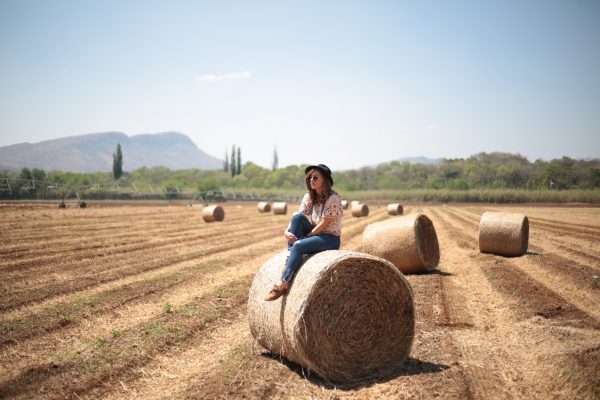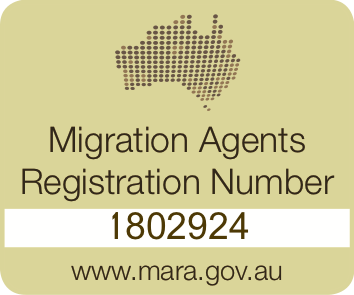Working in Australia on a Tourist visa? This is possible with WWOOFing. Even for people who can no longer obtain to a Working Holiday visa due to their age, or who do not want to go to Australia for several months at a time, this program is an interesting option. An Australian Tourist visa is completely sufficient for this purpose, because WWOOFing involves volunteering in exchange for meals, accommodation, and culture.
What is WWOOF?
WWOOF stands for Willing Workers On Organic Farms. It is a worldwide movement linking volunteers from different nations with organic farmers and growers, promoting international exchange and bringing together different cultures and lifestyles. WWOOF organisations can be found in many countries, including Australia.
There are now more than 1,400 registered farms in Australia, the so-called WWOOF Hosts, who participate in this program. The range extends from large farms with crop production, livestock, and animal husbandry, to fruit and vegetable cultivation, through to family farms or even private individuals with small vegetable gardens.
Why WWOOFing?
WWOOFing involves volunteering in exchange for meals, lodging, and culture. A great way to cut the cost of lengthier stays in Australia. What’s more, living with an Australian family immerses you in the culture of this country and its people in a completely different way than you get with a normal holiday. You will also learn about organic farming, environmental rehabilitation, and much more – not to mention the health aspect, with all that fresh Australian air.
How much do I have to work as a WWOOFer?
There are no overall binding rules on working hours and other standards. The recommendation of the WWOOF organisation is four to six hours a day, five days a week. In compensation for this you get free food, consisting of breakfast, lunch, dinner and drinks, as well as free accommodation. However, the exact working hours and offers are set by the hosts and can vary. These have to be negotiated and mutually agreed in advance. Everything happens on a voluntary basis.
What kind of accommodation is provided?
There are no legally binding standards and regulations from WWOOF Australia regarding accommodation for WWOOFers. The facilities offered vary from host to host.
Many farms offer guest rooms in their residential buildings; others have their own workers’ apartments, which are usually separate from the family home. Some also offer accommodation in caravans or other camping facilities. These details should always be discussed and clarified in advance.
How can I find WWOOF hosts?
First and foremost, you need to be at least 18 years of age to do WWOOFing. If you are, you can join WWOOF Australia. Upon payment of a six- or 12-month fee (annual membership is approximately A$70.-), access is provided to their database containing approximately 1,400 WWOOF hosts, the registered guest farms in Australia. You can sort this database according to size, farming system, vacancies, type of accommodation as well as number of family members, to help you to find the most suitable host.
You have the option of either sending an application to a host of your choice or creating a profile and getting invited by potential hosts. The website also offers various tools, such as an availability calendar, an info forum, a news service and much more.
What should you pay attention to?
WWOOFing is based on a voluntary agreement between the host family and the volunteer. This means that no formal contracts or agreements are entered into and you have the opportunity to terminate your activity at any time. To avoid any unpleasant surprises during your stay, you should pay attention to a few things, as listed hereafter.
Certain organisational aspects should be clarified with the WWOOFing host, such as:
- Working hours
- Type of work expected – are you able to do it?
- Type of accommodation
- Special dietary requirements
In addition, you should enquire as to the location of the farm and how exactly you can get there, since some farms in the outback are very remote and often difficult to access. Also, if you plan to spend your free days exploring the sights or visiting cities, this can be problematic if you’re based on a remote farm, due to lengthy travel times.
If you are unsure about how to choose the right host family, it can help to ask, for example, whether the family has had any experience with WWOOFers, how many people work the farm, etc., in order to gain a better understanding of the particular circumstances and expectations.
In addition, you should ensure that you have adequate insurance coverage for the duration of your stay. Members of WWOOF Australia are insured for accidents on the guest farm (up to A$10,000.-). This insurance is included in the membership fee. In addition, a separate private health insurance should be considered as well.
What are the visa requirements?
The specific requirements vary depending on the visa subclass. The most common Australian visas for WWOOFing are the following:
- eVisitor visa (subclass 651)
- Visitor visa (subclass 600)
- Working Holiday visa (subclass 417)
For Working Holiday visa holders, the conditions are very straightforward since this visa includes a work permit for up to six months for the same employer. For holders of a Tourist visa (eVisitor and Visitor visa), there is a lot more to consider.
A Tourist visa allows you to stay in Australia for up to three months; however, it does not include any work permit. To avoid any problems with the Department of Home Affairs, therefore, certain aspects should be considered. The predominant purpose of your stay in Australia must be holiday; helping on a farm may only play a secondary role and must be on a completely voluntary basis (no paid work).
As such, if you are travelling on a Tourist visa, make sure to choose your guest farm wisely. Small, family-run farms offering family-friendly accommodation are advisable. Larger farms that regularly employ several workers could be more of a problem here, as it could be assumed that this farm uses WWOOFers to reduce its staff costs and that the relationship between host and WWOOFer lacks the voluntary character.
Conclusion
WWOOFing is definitely an interesting opportunity for anyone who wants to get to know Australia and its inhabitants. However, especially as a Tourist visa holder, you should make sure not to cross the line between volunteer work in exchange for board and lodging, and paid work. Be it a cattle farm in the outback, a grain farm in Western Australia, or a winery in the Yarra Valley, as a WWOOFer you can truly immerse yourself in rural Australian life and experience it first-hand.








